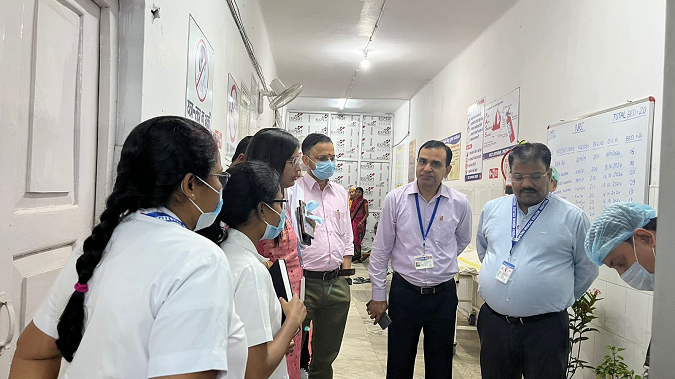What's New?
MusQan Initiative: Transforming Newborn and Child Health Services
In 2021, Ministry of Health & Family Welfare, Government of India launched the MusQan initiative under the National Quality Assurance Program. This initiative aims to reduce child mortality and morbidity by ensuring child-friendly health services at public health facilities. It focuses on strengthening clinical protocols, enhancing management processes, and providing respectful and dignified care to newborns and children in a supportive environment.
The State Health Society, Department of Health, Government of Bihar, began implementing the MusQan initiative in 2022-23. The implementation process included capacity building in selected districts, mentoring visits, internal assessments, and applications for national certification. The Norway India Partnership Initiative (NIPI), as a development partner, has been actively supporting these efforts by mentoring health facilities for MusQan certification. This support includes strengthening services at Special Newborn Care Units (SNCU), Pediatric Care Wards, and Nutrition Rehabilitation Centers (NRC) through gap analysis, action plans for improvement, and internal assessments.
To advance this initiative, a state-level assessment team visited the District Hospital in Saharsa from October 16 to 18, 2024. The team was led by the State Program Officer-Child Health (SPO-CH) from the State Health Society Bihar (SHSB), the State Team Lead from NIPI, and a Medical Officer from the Blood Bank at PMCH. The assessment team included members from the NIPI team, an external assessor, and a representative from SHSB.
During the visit, the team assessed various departments, including the SNCU, Pediatric Ward, Pediatric OPD, and NRC. They conducted interviews with staff and doctors and reviewed service delivery records following the MusQan assessment guidelines. The assessment revealed several strengths at the district hospital:
• The SNCU, Pediatric Ward, and NRC were clean and well-maintained.
• Essential equipment was properly calibrated and operational.
• Central oxygen supply, essential medicines, and prescribed IEC materials were available in the concerned departments.
• Adequate signage was observed across most areas of the facility.

However, the assessment also identified areas needing improvement, particularly in documentation, which was incomplete in some respects.
Following completion of the assessment, a meeting was organized with district health officials (Civil Surgeon and district program manager), administration of the district hospital (Medical Superintendent) and facility health staff to share the findings from the visit. The good performing areas and best practices were highlighted and shared. To further improve scores to enable certification of the facility, the team recommended in evolvement of doctors in maintaining quality, calibration of equipment’s, improving record keeping, conducting OSCE for periodic assessment of skills of SNCU and Paediatric ward and NRC staff and disaster management training.





